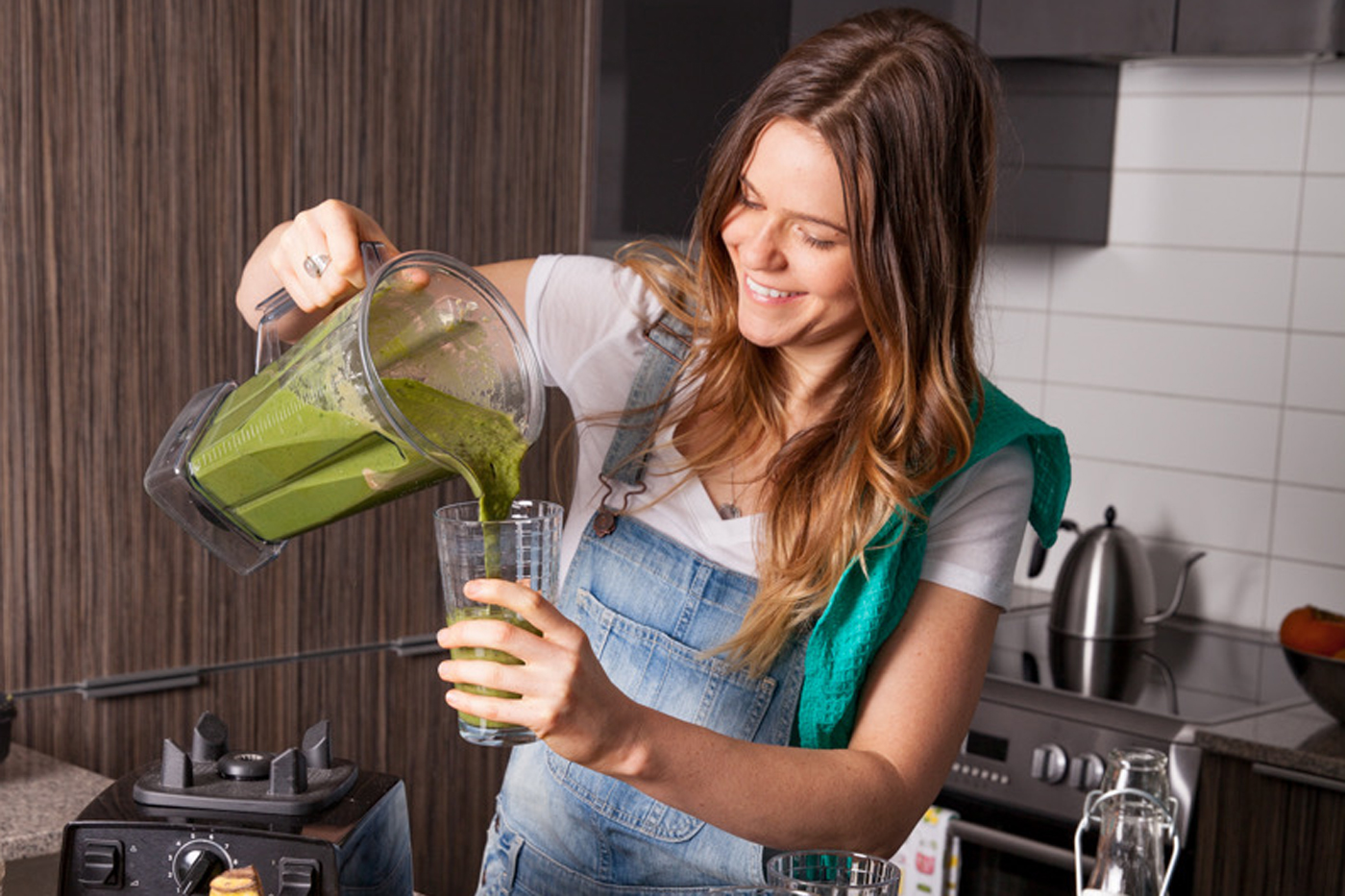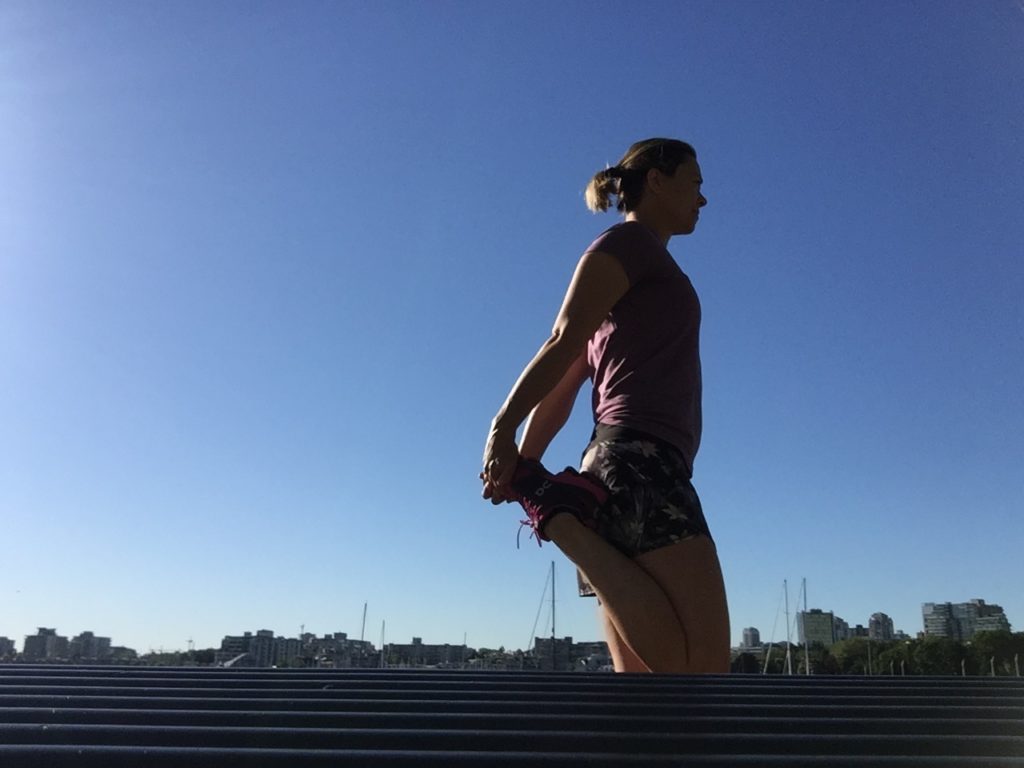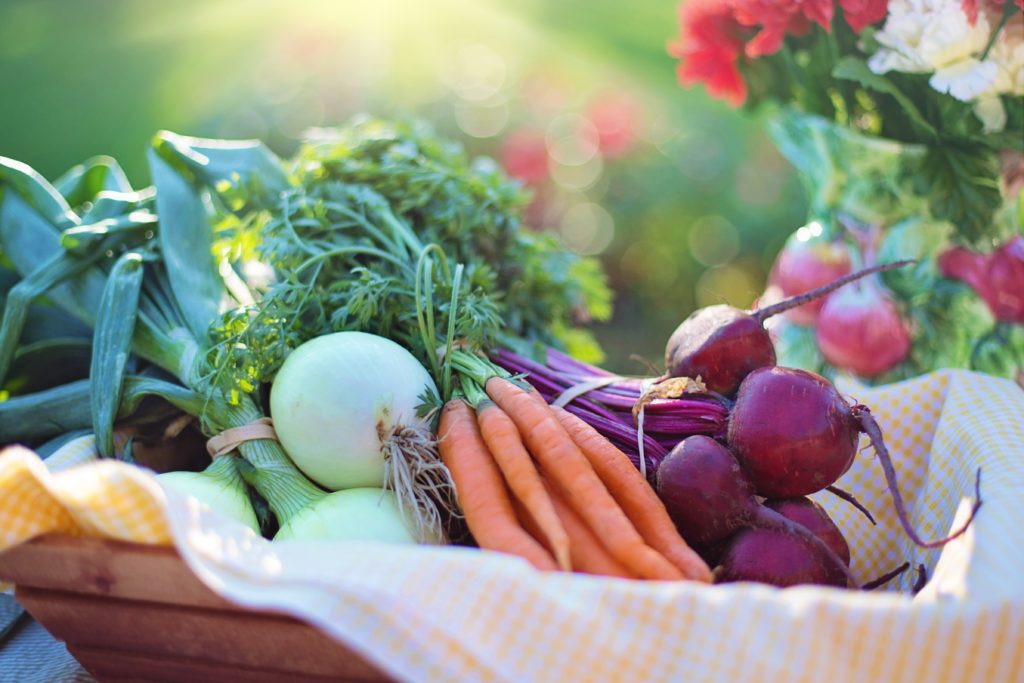
Have you ever wondered what to eat to fuel your workouts, to become strong, lean, full of energy all while staying true to your plant-based lifestyle?
I know I have.
I am fascinated by how food effects our health and performance. Sport, exercise and other physical activities have been a major part of my life since my teenage years. Being the geek I am, during the time, when I was switching to a vegetarian/vegan diet I spent countless hours reading, finding the sources and information not just in regards to plant-based food, but also regarding nutrition and training.
If you are a plant-based eater who loves to be active, then that’s awesome! What I’m about to share with you here is information (and personal experience) I have gathered over the years and I will provide you with the tools to help you get more out of your workouts, speed up recovery, and give you lasting energy so that you can make each day amazing…
Over the years of living an active lifestyle and striving to maintain a vegetarian and later on vegan diet I have learned that the top athletes that perform well, on a regular basis share one big thing in common.
What I have learned was that it’s not necessarily the amount of time these guys dedicate to training (although still very important) it’s more about what they do between their training sessions. What helps these top performers, the fittest and most successful athletes out there reach and stay at the top of their game is the emphasis they put into the recovery phase – the phase that allows the body to regenerate and repair after working out.
If you are able to speed up this process, than obviously you are able to train more often and improve at a faster rate.

RECOVERY IS IMPORTANT TO REACH YOUR FITNESS GOALS
…and recovery largely depends on your nutrition.
As I mentioned already, I am fascinated by nutrition and over the years I have experimented with different types of eating. I followed various nutrition plans in hopes to find the one that would support my active lifestyle and also allow me to stay healthy, strong, lean and full of life.
Some of these “diets” were promoting high carbs, some low carbs, several were focused on eating large amounts of dairy, soy and eggs, some were heavily based on consuming supplements and protein shakes. During that time I would monitor the way I felt as well as how I performed during sports and my regular workouts.
Today I would like to share with you some of the nutritional principles I have learned – thanks to several wonderful athletes and great minds (like Brendan Brazier, Rich Roll , Matthew Kenney) and from my personal life experience and mission to be healthy, active, happy and fit 😉
Please keep in mind that this is quite a general overview. It’s important to understand that sports nutrition is very individual. If you are a serious athlete you might need to look into this topic little bit deeper to find a nutrition plan that will fuel your specific needs. If you’re interested in a healthy option of adding supplements into your daily meals, check out these healthy vegan options on Vegan Health Products Online.
Let’s talk about clean whole food plant-based sports nutrition. I want to emphasize the word “CLEAN” as there is a lot of misconception regarding workout nutrition. Often what is advertised to us as “healthy” and “helpful” to boost our performance and fitness goals is quite misleading.

MAIN PRINCIPLES OF PLANT BASED WORKOUT NUTRITION
Avoid the carbotarian mistake
Don’t make the mistake many people make when they first switch to a plant-based diet. Just because you are active or because you just finished a hard workout doesn’t mean you should fuel up on starchy processed carbs like pasta, white bread or white rice. This is far from healthy and will only lead to nutritional deficients. In order to feel and perform well you need nutrients including amino acids (protein), vitamin B12, iron, healthy fats and calcium among others. If you are interested in health and performance then there is really no point of eating foods that provide zero or very little amount of nutritional benefits. That brings me to the second principle…
Focus on nutrient dense, easy to digest foods
Whole plant-based foods such as fruits and vegetables are high in important nutrients (vitamins, minerals, enzymes, phytocheicals) yet they don’t take much time to digest. Less energy, time and effort your body needs to expel for digestion the more energy you get to keep and enjoy.
Include healthy grains
Replace those starchy refine carbs for pseudo grains such as quinoa, wild rice, amaranth, buckwheat and teff. These are the seeds and grasses we commonly categorize as grains. All of them are known to be extremely high in protein, fibre and low-glycemic carbohydrates. They are also bursting with vitamins and minerals like calcium, iron and magnesium – all important to support an active lifestyle. The other incredible feature about these grains is that they are all alkaline-forming and gluten-free, making them accessible and amazing choice to speed up recovery and reduce inflammation in the body. They are incredibly easy to digest, absorb and assimilate. you can include them as a side dish, or add them to granolas, loaves, muffins and pilafs.
Here are a few of our go to recipes:
vegan muscle building quinoa sushi sandwich
Hydration helps
Staying hydrated all day long is necessary to be healthy, to have energy and stamina. When you are well hydrated, your blood becomes thinner and it can circulate more fluidly in your system. It also means that your heart needs to work less to pump more blood. So you can speed up in that spin class at no extra energy cost. Better circulation also means that oxygen is delivered more efficiently in your arms, in your legs and in your muscles. Water really is a critical nutrient before, during and after exercise. Hydration keeps your heart rate from climbing too high, which helps regulate your body temperature. As far as how much to drink? That’s very individual. Rather than blindly following a specific number of glasses, I would recommend that you listen to your body. Notice when you are thirsty or fatigued, as these can be signs of mild dehydration. Also, pay attention to the color of your urine. Your urine should be clear, not yellow or orange — a sign of dehydration.
Read the power of water: don’t medicate, hydrate! article to learn more about the importance of drinking water.
Reduce stress
When we talk about stress, most of us think of the traditional stress – too much to do, deadlines at work, not enough free time, relationship issues – and yes, that’s stressful for sure. A lot of the times, these outside stress factors can be challenging to control. But there is another type of stress – nutritional stress. A concept I first learned from Brendan Brazier and the fact that 40% of our daily stress can be contributed to poor nutrition. Now that to me is pretty crazy! Especially since nutrition is something that most of us can control. We all make food choices on daily basis and if you are at all interested in achieving vibrant health and perform well then it’s imperative to start making smart decisions when it comes to the food you eat. Trust me you do want to lower that nutrition stress and really the overall stress in your life. Here is why…
When you put your body under stress, doesn’t matter where that stress comes from, your body has to respond by releasing cortisol. Foods that are difficult to digest such as processed foods, chips, cookies, sodas, white bread, meat, dairy, etc. will stress the body enough to release cortisol. When cortisol is high, it starts a chain reaction and a bunch of negative things happen. For starters you lose the ability to get a restful sleep, you wake up tired and crave coffee and sugar which is really just a short term energy boost and further more contributes to more nutritional stress. So it’s really important to focus on eating whole unprocessed plant-based foods, lots of raw fresh fruits and vegetables to lower that nutritional stress. This way the quality of your sleep will improve, you won’t need as much of it and your recovery will improve dramatically.
Supplement with superfoods
I am a strong believer that we can satisfy majority of our nutritional needs through a properly planned diet. Rather than reaching for chemically altered sports enhancement products that often cause more harm than good. Instead, include superfoods into your diet.
Here are some of my favorite:
Maca
This root vegetable from Peru, grown at about 15,000 feet in volcanic soil. Due to it’s high mineral content. It helps nourish the adrenal glands and therefore assist the body with lowering cortisol levels.
This is my go to maca smoothie: maca rush smoothie
Spirulina & Chlorella
These two algae types have over 40 vitamins and minerals, including 100% or more of your daily dose of nearly all the B vitamins, Vitamin A, zinc, iron, manganese, and much more. Both are extremely alkaline forming and help reduce inflammation. When you reduce inflammation in the body your flexibility will improve, you will be able to move more efficiently and in much more functional way and use less energy. You can include a teaspoon of spirulina or chlorella into your drinking water or add it to your smoothies, just like we did in this acai bowl recipe.
Curcumin from Turmeric
It has a host of beneficial functions in the body, but for all of us active people one of its most important is the ability to reduce inflammation overall by acting as an antioxidant and liver balancer. Most people eating standard diets experience a lot of inflammation. When you’re younger you may not notice it. But for myself – an active female in her late 30s’, keeping it to a minimum is incredibly important. Turmeric can also be used for chronic joint pain and injury, but is an excellent preventive supplement as well. Nik and I try to add about a 1 teaspoon to our smoothies just like in this Good Morning Smoothie or enjoy a golden mylk latte, with a little black pepper.
There you have it. This is the basics of whole plant-based nutrition for all of you active bodies out there. Apply to your life today and experience for yourself all the wonderful health and performance benefits that come along with it. Perhaps at the beginning these principles might sound a bit overwhelming. However, please trust that it will get easier as you start to implement them and make it a part of your everyday life.
I am very grateful for you being interested in this topic and reading all the way to the end. Pease help spread the message by sharing this article/podcast with your friends and family. There are so many benefits of eating a plant-based whole food diet that go way beyond just our athletic performance.
Also, I am very excited for what’s coming up here on Active Vegetarian. Nikki and I have plans to record regular videos and share with you how you can make healthy plant based lifestyle part of your regular life, how you can progress on your journey and perhaps even help more people in your own life.
We love you and appreciate you,

